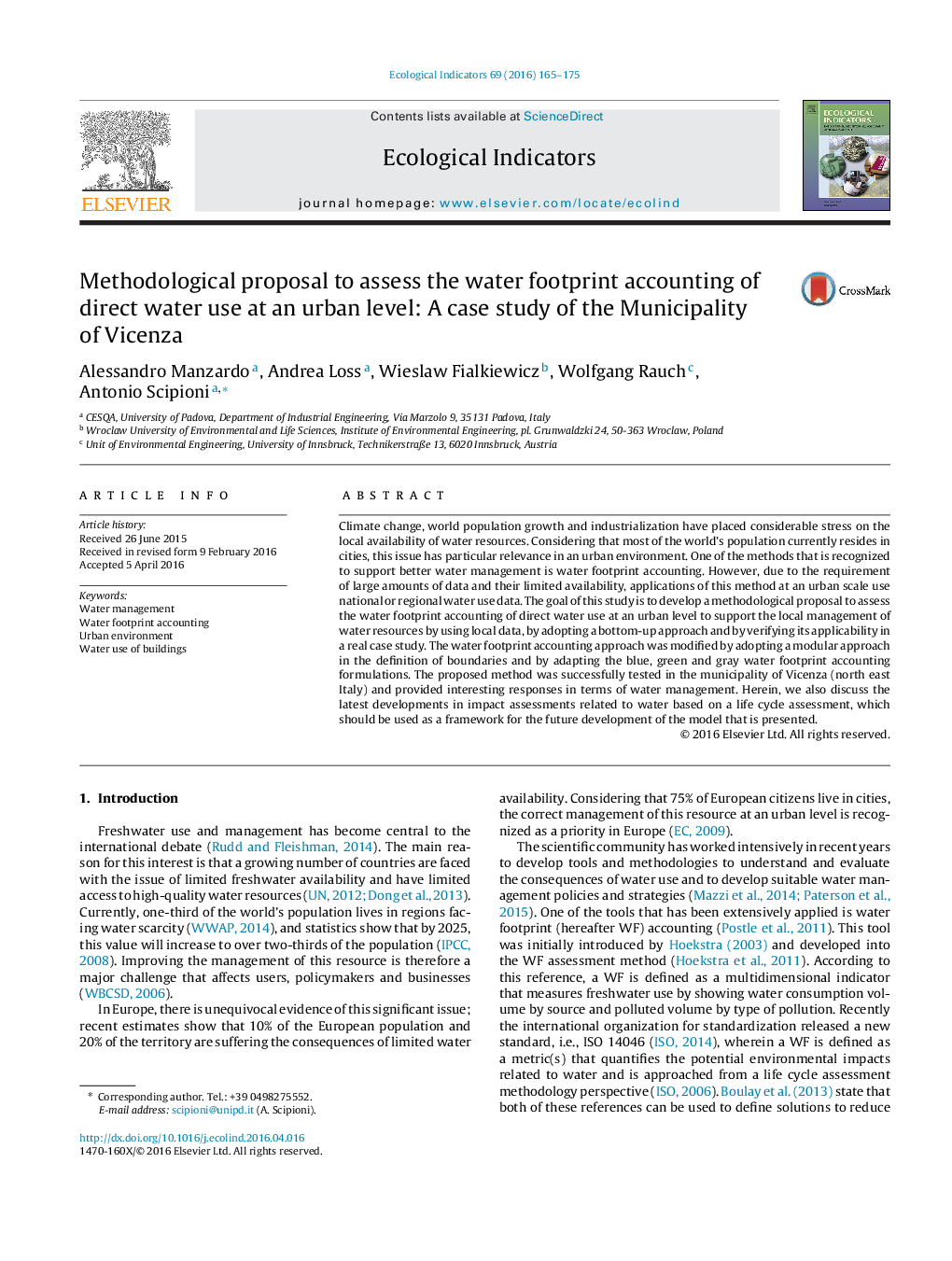| Article ID | Journal | Published Year | Pages | File Type |
|---|---|---|---|---|
| 6293204 | Ecological Indicators | 2016 | 11 Pages |
Abstract
Climate change, world population growth and industrialization have placed considerable stress on the local availability of water resources. Considering that most of the world's population currently resides in cities, this issue has particular relevance in an urban environment. One of the methods that is recognized to support better water management is water footprint accounting. However, due to the requirement of large amounts of data and their limited availability, applications of this method at an urban scale use national or regional water use data. The goal of this study is to develop a methodological proposal to assess the water footprint accounting of direct water use at an urban level to support the local management of water resources by using local data, by adopting a bottom-up approach and by verifying its applicability in a real case study. The water footprint accounting approach was modified by adopting a modular approach in the definition of boundaries and by adapting the blue, green and gray water footprint accounting formulations. The proposed method was successfully tested in the municipality of Vicenza (north east Italy) and provided interesting responses in terms of water management. Herein, we also discuss the latest developments in impact assessments related to water based on a life cycle assessment, which should be used as a framework for the future development of the model that is presented.
Related Topics
Life Sciences
Agricultural and Biological Sciences
Ecology, Evolution, Behavior and Systematics
Authors
Alessandro Manzardo, Andrea Loss, Wieslaw Fialkiewicz, Wolfgang Rauch, Antonio Scipioni,
